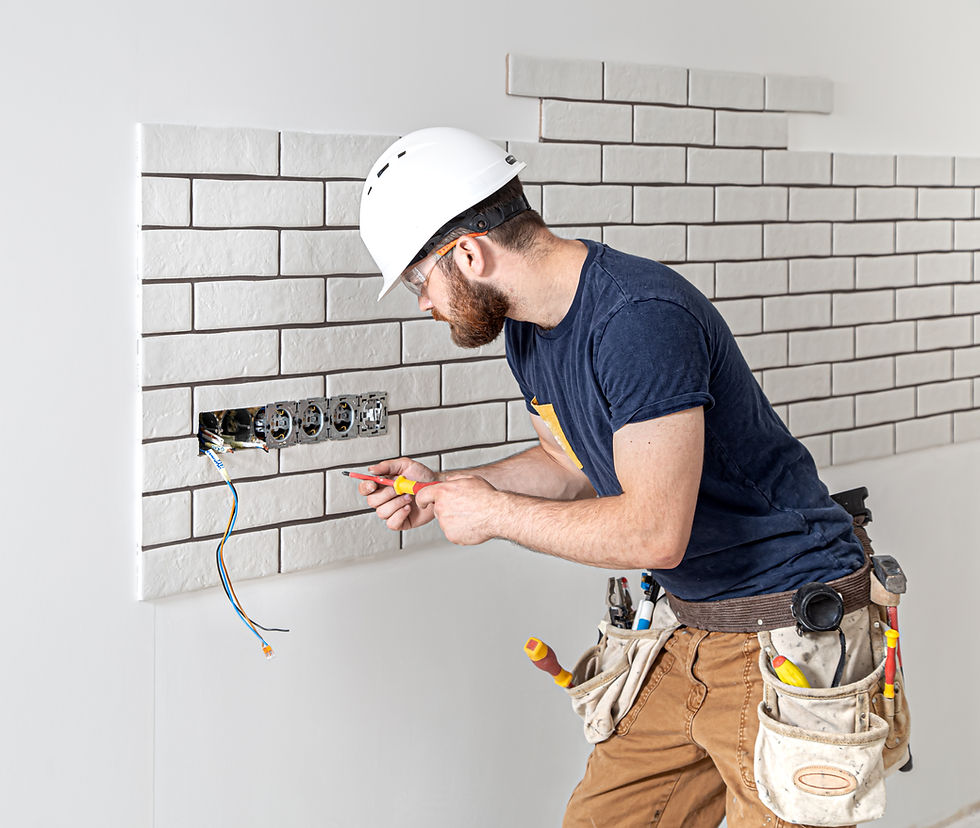Best Way to Avoid Electrical Short Circuits
- John Shaw
- Mar 6, 2025
- 3 min read

Electrical short circuits pose a serious safety risk, potentially causing fires, electrical shocks, and appliance damage. Whether at home or in a commercial space, taking preventive measures can protect your electrical system and prevent costly repairs.
Understanding the causes of short circuits and applying effective prevention strategies can significantly reduce risks. This guide provides practical tips to help you safeguard your electrical setup.
What Causes Electrical Short Circuits?
A short circuit occurs when an unintended connection forms between live wires, allowing electricity to flow uncontrollably. This results in excessive heat, often leading to sparks, burns, or even electrical fires.
Common causes include:
Faulty Wiring: Aged, damaged, or improperly installed wires increase the risk.
Overloaded Circuits: Connecting too many devices to a single outlet can strain the system.
Damaged Insulation: Worn-out wire insulation exposes conductors, leading to accidental contact.
Water Exposure: Moisture in outlets or wiring can trigger a short circuit.
Malfunctioning Appliances: Defective devices can disrupt the electrical flow and cause shorts.
By recognising these risks, you can take proactive steps to maintain a safe environment.
1. Regular Electrical Inspections
Routine inspections help detect wiring problems before they escalate. A local electrician can assess your home or business for outdated or frayed wiring, ensuring everything meets safety regulations.
For properties with older electrical systems, a professional upgrade may be necessary. If you live in the area, hiring an electrician in Stevenage, ensures compliance with local safety standards.
2. Avoid Overloading Circuits
Plugging too many devices into a single outlet can cause overheating and increase the likelihood of a short circuit. Distribute electrical loads evenly and use power strips with surge protection for additional safety.
For commercial settings, installing dedicated circuits for high-power equipment prevents overload issues. Businesses seeking reliable commercial services should consult a qualified professional to design a safe electrical layout.
3. Use High-Quality Electrical Components
Substandard wiring, sockets, and extension cords are common culprits in short circuits. Always invest in high-quality materials that meet industry standards.
Choose circuit breakers and fuses designed for your electrical load to prevent overheating. Seeking expert electrical services helps in selecting and installing the right components.
4. Keep Electrical Systems Dry
Water and electricity are a dangerous combination. Keep outlets, switches, and appliances away from water sources to prevent electrical hazards.
In bathrooms, kitchens, and outdoor areas, install Ground Fault Circuit Interrupters (GFCIs) to cut power in case of moisture exposure. If you suspect wiring damage due to water leaks, contact a local electrician for immediate assistance.
5. Repair or Replace Faulty Appliances
Old or malfunctioning appliances can cause electrical faults, increasing the risk of short circuits. Regularly check cords, plugs, and internal wiring for signs of wear.
Never use appliances with exposed wires or burning smells. If an issue persists, seek professional advice. Homeowners and businesses looking for safe and efficient domestic and commercial services should rely on certified electricians for electrical maintenance.
6. Install Proper Circuit Protection
Modern electrical systems include safety mechanisms like circuit breakers and Residual Current Devices (RCDs). These devices shut off power when irregularities occur, preventing electrical faults from escalating.
Ensure your home or business is equipped with updated protective systems. If you're unsure about your setup, an electrician in Stevenage, can assess and upgrade your protection measures.
7. Educate Household Members or Staff
Everyone using electricity should understand basic safety practices. Teach family members or employees to:
Avoid overloading outlets.
Report faulty appliances or flickering lights.
Keep electrical cords untangled and in good condition.
Never handle electrical equipment with wet hands.
Awareness plays a significant role in preventing short circuits and promoting a safer environment.
8. Schedule Professional Maintenance
Regular maintenance ensures the longevity and safety of your electrical system. A trained professional can identify hidden issues, perform necessary repairs, and advise on energy-efficient solutions.
Whether for residential or commercial services, periodic maintenance reduces the risk of unexpected short circuits. Seeking expert electrical services helps in maintaining a secure and efficient setup.
Conclusion
Preventing electrical short circuits requires proactive measures, from routine inspections to proper appliance usage. By avoiding overloaded circuits, using quality components, and ensuring professional maintenance, you can significantly reduce risks.
For those needing expert assistance, Rytec Electrical provides reliable electrical services. Whether for a home or business, their team of skilled professionals ensures safe and efficient solutions. If you're looking for a trusted electrician in Stevenage, their expertise guarantees top-quality service.



Comments